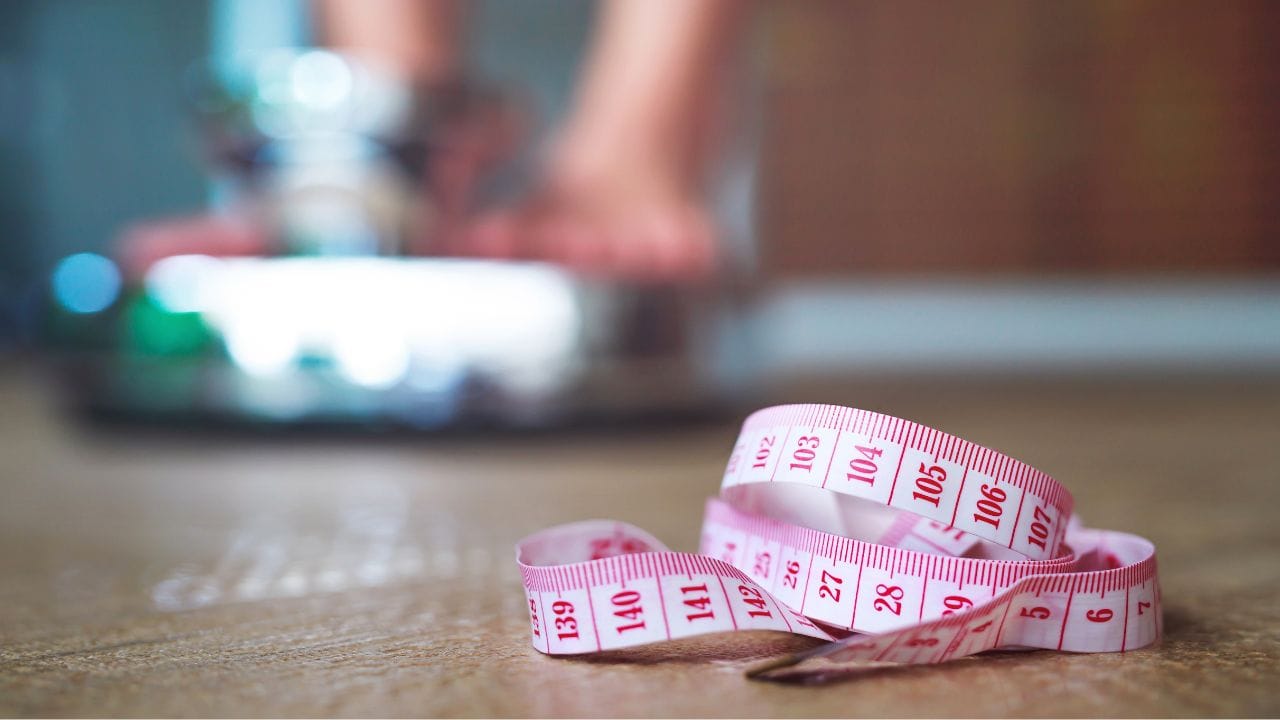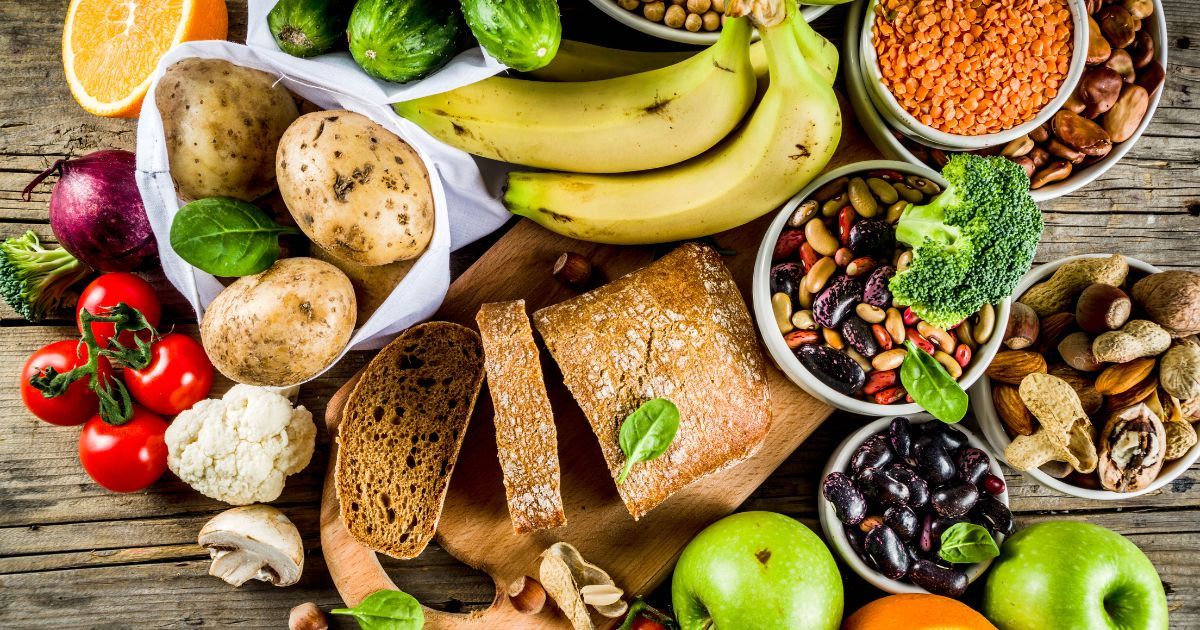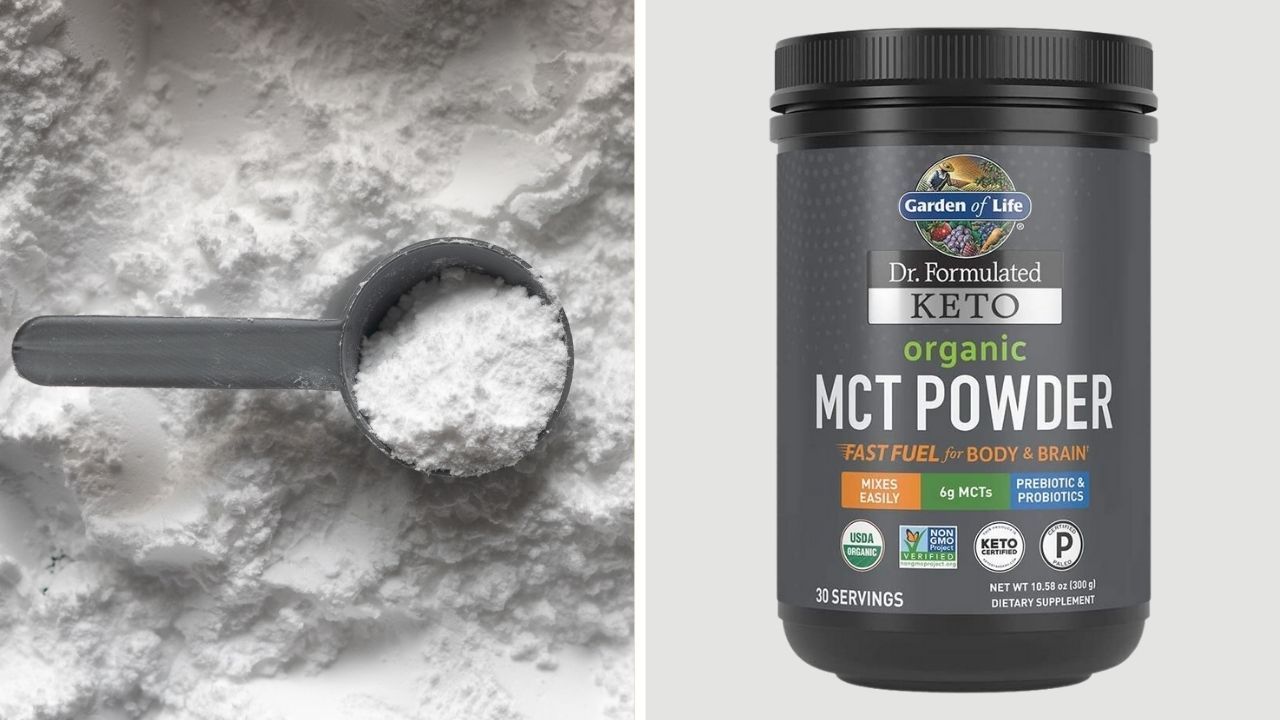
Why Am I Gaining Weight On Keto? Unraveling The Mystery
Want to understand 'Why Am I Gaining Weight On Keto'? Our article reveals the hidden factors that could be sabotaging your diet.
So, you've jumped on the Keto bandwagon, expecting to shed those extra pounds, but instead, you're baffled to see the scales tipping in the opposite direction.
Don't worry; you're not alone. This blog post is here to help you understand why this might be happening and how to get your Keto journey back on track.
The Keto diet, popular for its low-carb, high-fat regimen, has been a go-to for many people looking to lose weight quickly.
However, a common misconception is that simply being on Keto guarantees weight loss. Like any diet, it's not just about what you eat, but also how much and how often.
Understanding the Keto Diet
The typical macronutrient ratio on the Keto diet is around 55% fats, 30-35% proteins, and only 5-10% carbohydrates.
This means your diet will primarily consist of foods like meats, eggs, cheese, fish, nuts, butter, oil, and low-carb vegetables. Highly processed foods, sugars, bread, and other grains are a big no-no.
Common Reasons for Weight Gain on Keto
1. Consuming Too Much Fat

This is the number one reason people gain weight on keto. A common misconception about the Keto diet is that because it's high in fats, you can consume as much fat as you want.
While it's true that the Keto diet requires a higher proportion of calories from fat compared to traditional diets, it doesn't mean that the fats are freebies.
Remember, the goal of the Keto diet is to shift your metabolism to burn fat for fuel, but that doesn't mean loading up on all the fatty foods you can get your hands on.
The key is to eat enough fat to keep you satiated but not so much that you end up in a calorie surplus.
Use a TDEE (Total Daily Energy Expenditure) calculator to find your daily calorie intake.
2. Hidden Carbohydrates
If you've been on the Keto diet for a while, you're probably well aware of the obvious carb-rich foods to avoid - bread, pasta, rice, and sugary drinks, to name a few.
But did you know that carbohydrates can sneak into your diet from some unsuspecting sources? These hidden carbs can secretly sabotage your Keto efforts.
Here are some surprising sources of hidden carbs:
- Vegetables: While vegetables are generally low in carbs, some types, especially starchy ones like potatoes and corn, can pack in more carbs than you think.
- Packaged Snacks: Just because a snack is labeled as 'low-carb' doesn't mean it's carb-free. Some packaged snacks can contain hidden carbs in the form of sugars or fillers.
- Nuts: Although nuts are a great source of healthy fats, not all nuts are created equal when it comes to their carb content. For example, just one 25g serving of cashews could include up to 6g of carbs.
- Sweeteners: Even zero-calorie artificial sweeteners can sometimes contain carbs, especially if they're bulked up with fillers.
- Processed Meats: Some processed meats, like hot dogs, jerky, and honey roast ham, can contain added sugars or fillers, making them higher in carbs than you'd expect.
- Seafood: Although seafood is typically low in carbs, shellfish like clams, mussels, and oysters have a higher carb content compared to other seafood options.
- Condiments: Sauces and dressings can be a sneaky source of hidden carbs, often containing sugar or other carb-based thickeners.
3. Cheating on the Keto Diet
Cheating on the Keto diet can be tempting, especially when you're surrounded by non-Keto foods at a party, during the holidays, or on a night out.
However, it's important to understand that even a small cheat meal can have significant effects on your body and may kick you out of ketosis.

When you consume more than 50 grams of carbs in a day, which is quite easy if you indulge in a slice of cake or a few slices of pizza, your body switches back to burning glucose for energy instead of fats. This means you're no longer in a state of ketosis.
But what does this mean for your weight? When you're back to burning glucose, your body also retains water. Carbohydrates bind with water molecules, so when you eat them, they pull water into your muscles, which causes water weight gain. This might explain why the scale jumps up a few pounds after a cheat meal.
Moreover, cheating on the Keto diet can lead to cravings. When you consume sugary or high-carb foods, your blood sugar levels spike, and when they drop again, you may find yourself craving more carbs. It's a vicious cycle that can be hard to break.
However, it's not all doom and gloom. If you do end up cheating, don't beat yourself up about it.
We're all human, and slip-ups happen. The best thing to do is to get back on track with your Keto diet as soon as possible. Remember, one cheat meal doesn't define your diet or your progress, but consistent habits do.
4. Artificial Sweeteners

Artificial sweeteners, also known as sugar substitutes or nonnutritive sweeteners, are ingredients used in place of regular (sucrose) sugar to sweeten foods and drinks. They are much sweeter than sugar but contribute fewer calories to your diet.
Examples of artificial sweeteners approved by the U.S. Food and Drug Administration (FDA) include acesulfame-K, aspartame, neotame, saccharin, and sucralose.
- These sweeteners are often found in diet and zero-calorie drinks, protein bars, and other low-carb or sugar-free foods.
However, while these sweeteners may seem like a good idea for those on a Keto diet, they can actually lead to weight gain.
- The sweet taste without the calorie content can confuse your body, leading to increased cravings and potential overeating.
- They can also have an impact on your gut health, potentially disrupting the balance of your gut bacteria.
- Some studies have linked certain artificial sweeteners to a variety of health issues, from digestive problems to an increased risk of certain types of cancer.
Remember, just because a product is marketed as sugar-free doesn't mean it's carb-free or healthy. Always check food labels carefully, and consider whether an occasional treat with real sugar might be healthier than daily consumption of artificial sweeteners.
5. Too Much Stress
Stress - it's a word we hear all too often in today's fast-paced world. But did you know that excessive stress can lead to weight gain, even when you're on a Keto diet?

Cortisol signals your body to replenish your energy (even if you haven't used many calories in response to your stress), leading to increased hunger. and difficulty losing weight.
Additionally, stress can disrupt your sleep patterns, leading to fatigue and a lack of motivation to exercise. It can also lead to emotional eating or reaching for comfort foods, which are often high in carbs and sugar.
Common symptoms of chronic stress include headaches, muscle tension, insomnia, and anxiety. If you're experiencing these symptoms, it may be time to take a closer look at your stress levels.
Here are some strategies to manage stress:
- Regular Exercise: Physical activity helps to lower your body's stress hormones and release endorphins, which are natural mood lifters.
- Practice Mindfulness: Techniques such as meditation, deep breathing, yoga, or tai chi can help you to relax and manage stress.
- Connect with Others: Spend time with friends and family, get involved in your community, or join a club or group to help you feel connected and supported.
- Get Adequate Sleep: Stress can interfere with sleep, but lack of sleep can also contribute to stress. Aim for seven to nine hours of quality sleep per night.
- Seek Professional Help: If stress becomes overwhelming, don't hesitate to seek help from a mental health professional.
Remember, everyone experiences stress from time to time, but chronic stress can impact both your physical and mental health. Taking steps to manage stress can contribute to a healthier lifestyle and more effective weight management on the Keto diet.
6. Alcohol Consumption
Many alcoholic drinks are packed with hidden carbs and sugars. Plus, alcohol can slow down fat burning, hindering your weight loss efforts.
Alcohol consumption can be a tricky area when following a ketogenic diet. While it's possible to enjoy certain types of alcohol in moderation on a keto diet, it's important to remember that excess alcohol can stall weight loss and negatively impact health.

Many alcoholic beverages are high in carbs, particularly beer and sweet cocktails, which can quickly take you out of ketosis.
- Even though some spirits like vodka, tequila, or whiskey contain no carbs, they still contribute to your daily calorie intake.
- Consuming too many calories, regardless of whether they come from carbs, protein, or fat, can lead to weight gain.
Moreover, alcohol can affect your judgment and willpower, making it more difficult to stick to the keto diet. It also has a dehydrating effect, which can lead to hangovers that might leave you craving carb-heavy foods.
7. Eating Too Much Salt
While some salt is essential on Keto to balance electrolytes, too much can lead to water retention and temporary weight gain.

Salt, or sodium chloride, is a crucial nutrient for the body. It helps maintain fluid balance, aids in nerve transmission, and influences muscle function. However, consuming excessive amounts of salt can lead to various health issues, particularly if you're on a ketogenic diet.
Overconsumption of salt can cause your body to retain water to balance out the high sodium levels.
- This water retention can result in bloating, puffiness, and swelling, often mistaken for weight gain.
- Additionally, a high-salt diet may increase thirst which can be misinterpreted as hunger, potentially leading to overeating.
Excessive salt intake can also lead to symptoms like headaches, poor sleep quality, and in some cases, nausea or diarrhea. If you notice these signs, it might be an indication that you're consuming too much salt.
Drinking plenty of fluids and immediately cutting out salt and salty foods (I'm looking at you bacon) can also help flush excess sodium out of your body.
8. Not Cutting Back Enough on Carbs

Carbohydrates are a vital part of our diet, providing the body with glucose, which is converted to energy to support bodily functions and physical activity.
However, not all carbs are created equal. The type, quality, and quantity of carbs consumed can influence health.
When following a low-carb diet such as the ketogenic diet, it's crucial to cut back on carbs sufficiently. Some people are more sensitive to carbs than others, and even a moderate intake may hinder weight loss.
A sudden reduction in carb intake can lead to weight loss, primarily due to water loss at first. However, severe carb limits can cause your body to break down fat into ketones for energy, a state known as ketosis. While this can aid in weight loss, it can also lead to side effects such as bad breath, headache, fatigue, and weakness.
On the other hand, consuming too many carbs on a low-carb diet could build up your glycogen stores, making it harder for you to get back into ketosis.
9. Giving in to Cravings
Cravings can be your worst enemy on Keto. Giving in to them can easily lead to overeating and weight gain.

Food cravings are a common experience, but understanding how to manage them is key to maintaining a healthy diet. Cravings often arise due to emotional needs such as stress or anxiety reduction, and sometimes they can signal nutritional deficiencies.
There are generally three types of cravings:
- Supportive cravings are your body's way of telling you what it needs nutritionally.
- Dispersive cravings are those that lead to overeating unhealthy foods.
- Associative cravings are tied to specific situations or feelings.
On the flip side, constantly giving in to cravings can lead to overeating and negative health consequences.
- Strategies to manage cravings include eating small, frequent meals to prevent hunger spikes, consuming plenty of fiber, and not keeping trigger foods in the house.
10. Water Retention and Constipation

Finally, if you're not drinking enough water or consuming enough fiber, you may experience constipation and water retention, which can reflect as weight gain on the scale.
During the initial stages of a ketogenic diet, your body undergoes a significant metabolic shift.
- Instead of using glucose from carbohydrates as its primary energy source, it begins to utilize ketones derived from fats.
- This shift can lead to various physical responses, including water retention and constipation.
Managing these issues involves proper hydration, maintaining a balanced intake of electrolytes, and incorporating non-carbohydrate sources of fiber into your diet.
There are several keto-friendly foods rich in fiber that can aid in preventing constipation while keeping you within your daily carb limit.
- These include leafy greens like spinach and kale, low-carb vegetables such as broccoli, zucchini, and cauliflower, and high-fiber fruits like avocados.
- Seeds and nuts like chia seeds, flaxseeds, and walnuts are also excellent sources of fiber.
Gender-Specific Factors: Women and Keto Diet
Now, let's dive into something often overlooked - the impact of gender on the Keto diet. Ladies, have you noticed a sudden weight gain after starting Keto? You're not alone.

Several factors might contribute to this.
- Hormonal changes during menstrual cycles can lead to water retention and cravings.
- Plus, women generally have more body fat than men, which can slow down the fat-burning process.
One significant difference lies in the body's sensitivity to leptin, a hormone that helps regulate energy balance by inhibiting hunger.
Women are more susceptible to leptin sensitivity, with leptin receptors present in their ovaries and thyroid. The keto diet, which focuses on carb restriction to produce ketones, can reduce leptin levels, potentially impacting women more than men. [source]
- Research also suggests that the ketogenic diet may affect female hormones. Changes in body composition, such as those resulting from weight loss on the keto diet, can alter Gonadotropin-Releasing Hormone (GnRH) levels. Disruptions in GnRH can lead to reduced estrogen levels, potentially disrupting ovulation and causing amenorrhea. [source]
Moreover, the keto diet can have varying impacts on weight loss and food cravings in women.
- A study found that women following a low-calorie keto diet lost body fat and noted decreased food cravings after several weeks. However, it is unclear whether these results are sustainable long-term.
As for the question of whether women need more carbs than men on a keto diet, this depends on individual nutritional needs rather than gender.
Some people thrive with very low carbohydrate intake, while others do better with more carbs.
Debunking Myths: Q&A Segment
Here, we'll address some common questions you may have about weight gain on Keto.
Can I eat unlimited amounts of fat on Keto?
No. While Keto is a high-fat diet, it doesn't mean you can consume fats without any limit. Too many calories, even from fats, can lead to weight gain.
Does consuming more protein kick me out of ketosis?
Not necessarily. While it's true that excessive protein can be converted into glucose, moderate consumption usually doesn't affect ketosis.
Can I drink alcohol while on a Keto diet?
While some low-carb alcohols can fit into a Keto diet, they can slow weight loss and increase cravings.
How can I speed up my ketosis weight loss?
To speed up weight loss during ketosis:
- Limit your carb intake to 20-50 net grams per day.
- Incorporate physical activity into your routine to deplete glucose reserves and boost ketone production.
- Consider intermittent fasting to enhance ketone levels.
- Ensure you consume adequate protein for satiety and muscle preservation.
- Don't forget to stay hydrated for optimal digestion and metabolism.
- Prioritize good sleep as its deficiency can impede weight loss.
How often should I weigh myself on keto?
There isn't a one-size-fits-all answer to this question. Some experts suggest weighing yourself daily for accountability. While others recommend weekly weigh-ins to avoid anxiety or disordered eating. It's also suggested to weigh yourself at the same time each day, preferably in the morning, for consistent measurements.
It's important to remember that healthy weight loss with the keto diet (any diet for that matter) requires consistent change over time and daily fluctuations in weight are normal.
Ultimately, the frequency of weigh-ins should be based on what makes you feel most comfortable and motivated.
Final Quick Tips to Avoid Weight Gain on Keto
Now that we've identified the potential pitfalls, here are some ways to steer clear of them:
- Monitor Your Fat Intake: Use a food diary or an app to keep track of your calorie and fat intake. Get a food scale and weigh out your portions.
- Check Food Labels: Always check for hidden carbs in packaged foods.
- Stay Hydrated: Drink plenty of water to avoid constipation and water retention.
- Manage Stress: Incorporate relaxation techniques like yoga or meditation into your daily routine.
- Limit Alcohol: Try to limit drinking alcohol, especially drinks high in carbs.
- Listen to Your Body: Every 'body' is different. Keep an eye on what foods make you feel good and which ones don't.
Bottom Line
Gaining weight on Keto can be puzzling but understanding the reasons behind it can help you get back on track. From monitoring your fat and carb intake to managing stress levels, there are several strategies you can adopt.
Remember, the journey to health is not a sprint but a marathon. There might be hurdles along the way, but with knowledge and determination, you can overcome them. So, keep going, and remember, every step, no matter how small, is progress.
Recommended For You...






